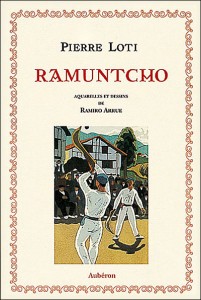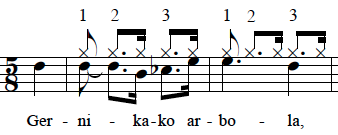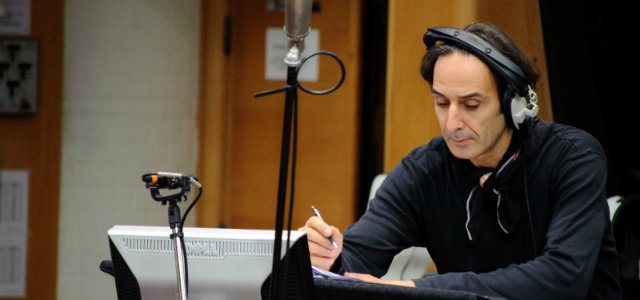The Basque-Spanish conductor Juanjo Mena brought a delightfully obscure program to Cincinnati last week: Gabriel Pierné’s “Ramuntcho” Overture and Alberto Ginastera’s “Panambi” (complete).  The Ginastera is a wonderful piece and an especially impressive Op. 1 (composed at the tender age of 20) but I think enough ink has been spilled about Ginastera’s youthful stint as the Argentine Stravinsky.  There’s a great LSO recording which I’d recommend to one and all.
The piece I really fell in love with and feel compelled to discuss here is Gabriel Pierné’s overture to “Ramuntcho”, which I am quite confident in saying you, dear reader, have never heard before.

“Ramuntcho” started out as a novel by the French colonial diplomat/naval officer/oriental fetishist Pierre Loti.  It takes place in the Basque country, which was enough to make me want to know everything about it, cause I loves me some Basques.  You can you can download the novel for free and read it in a few days; I’d recommend it.
The book was adapted into a play for which Pierné composed the incidental score, hence the overture.  Before I continue, let’s just get two things out of the way: 1) Juanjo’s recording is the definitive version of this overture and way better than Pierné’s own scrappy account from the 1930’s (sorry Gabriel!)
And 2) let’s discuss what this overture is and what it isn’t.  It is very definitely not a symphonic movement with thematic development and the other trappings of that form.  It IS a charming medley of songs and dances culled, to the best of Pierné’s abilities from the folk tradition of the Basque country.  It is well orchestrated and delightful.
Here’s a couple examples of the loveliness that Pierné has wrought.  He took this unruly Basque folk dance, the “Aurresku”:
and rendered those tuneless txistus into a sprightly woodwind section:
He also looked to the national rhythm of the Basques*, the zortziko, a 5/8 meter than has a feel of three with one short beat and two longer ones.  It’s excellently demonstrated by the lovely “unofficial national anthem” of the Basques, “Gernikako Arbola”

Pierné does gives us a chirpy little tune with the zortziko lilt at the top of his overture:
and then lushes it up like a badass with the strings:
And assorted other loveliness.  Pierné’s output is a little hit or miss, which you can hear on Juanjo’s disc.  His music is grounded in Saint-Saëns with sprinklings of Roussel and Ravel.  So let’s all do our little part for Pierné and the Basque people and listen to and read “Ramuntcho”!
*So then what’s the U.S. “national rhythm”? Â The back-beat? Â Discuss.

I’m officially on board with Alexandre Desplat.  I know, it’s like, welcome to the 21st century, but his totally anachronistic score to “The King’s Speech” just rubbed me too much the wrong way.  After seeing The Grand Budapest Hotel – a movie I thought better than most of Wes Anderson’s recent efforts but still not quite my cup of tea – I see how vivid M. Desplat’s musical imagination is and what a compelling partnership these two artists make, verging on Ozon-Rombi/Almodóvar-Iglesias/Burton-Elfman territory.
[Side note: who is the gayer filmmaker: the openly homosexual François Ozon or the openly dandified Wes Anderson?  Is it possible, given our current cultural understanding of the ‘gay’ to consider the pink-frosted confections of a straight man more aligned with this categorically than, say, “In the House”?  Discuss.]